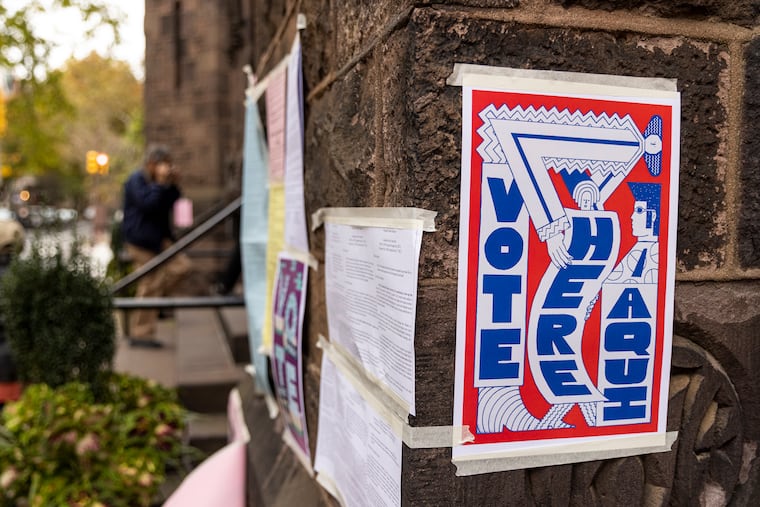A plea from a veteran of the civil rights movement — vote
Voting is not a chore. All of the sacrifices made to ensure our right to vote make it a sacred act.

As a child who grew up in the segregated South, I have been involved in the struggle for the freedom to vote for more than six decades.
My involvement in the civil rights movement led to my being jailed while working with the Student Nonviolent Coordinating Committee and spurred me to a lifetime of public service, engaging and defending democracy.
In the 1970s, I ran for the City Council in Greensboro, N.C., and I lost by a mere 101 votes in a district made up of hundreds of thousands of people. Many of those that I considered friends half-heartedly apologized to me later on saying, “I did not think my vote would matter.” You can imagine how hearing that felt.
Your vote matters — especially in this election cycle — and any additional roadblocks that are placed in your way do nothing but erode the democratic process.
At this unprecedented and crucial time in our nation’s history, we must remember how many people paid the price for our right to vote. Voting is not a chore. All of the sacrifices made to ensure our right to vote make it a sacred act. There are many groups actively seeking to deny you your right to vote. Don’t hesitate, don’t be afraid. You must exercise your right to vote.
In my decades of public service, working to defend democracy has taken many different forms, ranging from Peace Corps work in Liberia to being appointed by President Jimmy Carter to lead the National Head Start Program. The stakes are so high in Pennsylvania in this election that my work continues here today: for the last three weeks, I have joined POWER Interfaith on their Freedom Express bus tour across the state — to register and mobilize voters, demonstrate at contested ballot boxes, and celebrate the incredible power of our votes.
Over the years, I have learned a lot about the real work of democracy. Democracy comes from the Greek, meaning “people power.” What is our power? Our power is having a voice in decision-making. Our power is being able to choose leaders to represent our collective interests. Our power is sacred.
We must be able to recognize and defend against threats to democracy in order to be able to exercise our power. Voter suppression is one threat that comes in many forms. It may appear as challenges to mail-in or absentee ballots, understaffed polling places creating long voting delays, voter intimidation at polling places or drop boxes, or outright violence.
I’m disappointed when I see courts issue decisions that make it more difficult to vote, such as the ruling by the Pennsylvania Supreme Court that tells counties to segregate mail ballots without a handwritten date on the return envelope, but not count them. No one should be disenfranchised for an irrelevant technicality.
I am frequently reminded of an old Portuguese mantra from the sit-ins and voter registration movements, where I drove people to the polls every election day, “a luta continua” — the struggle continues. The work of ensuring our rights is not the work of a single election cycle, or a single generation, or even an entire lifetime. It is work that has been ongoing for as long as people have yearned for freedom and justice.
In this struggle, we are all standing on the shoulders of those who came before us and lifting up those who will come after us. Working to build a multi-faith, multiracial solidarity is a direct continuation of the work I’ve been committed to for all these decades, and the work is as urgent now as it has ever been. We must fight for freedom and use our freedom for the collective good. We must vote.
Sia Barbara Kamara is deacon at Faith United Church of Christ in Washington, D.C. A civil rights activist and participant in the sit-in movement in the 1960′s, she is a former associate commissioner with the U.S. Department of Health and Human Services.